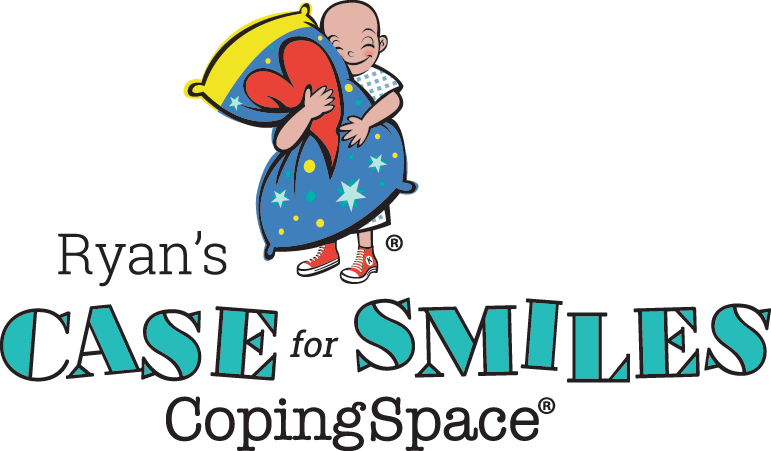BLOG
Social Distancing and Health Precautions: How to Have Difficult Conversations with Friends and Family
October 29, 2020
 With the approach of flu season, a global pandemic, and caring for a child with a life-changing illness or injury, it’s likely you are taking a wide variety of safety precautions – and asking those around you to do the same. Unfortunately, this can lead to situations and conversations that are stressful or frustrating.
With the approach of flu season, a global pandemic, and caring for a child with a life-changing illness or injury, it’s likely you are taking a wide variety of safety precautions – and asking those around you to do the same. Unfortunately, this can lead to situations and conversations that are stressful or frustrating.
And these are especially difficult conversations as people have different comfort levels and perceptions of what’s safe. Friends and family may hear your requests and feedback as criticism and become defensive. With the stakes so high, it is easy to get upset. But with preparation and the right approach you can do your best to ensure things go as smoothly as possible, maintaining your support system and keeping your family safe.
How to Have Tough Conversations with Loved Ones About Social Distancing and Safety
Prepare Wisely
To set yourself up for success, it’s important to prepare carefully. Before having any of these conversations, have one with yourself first. How are you feeling? This is not a discussion you want to have angry or upset. Nor do you want to have “the talk” after an argument.
If this is the case, try to release tension with a favorite activity and let some time pass. It can also be helpful to remember people are not as responsive to threats they cannot see. They might not understand your child’s condition, or be preoccupied and not consider the risk. For this reason, it’s best not to presume malicious intent.
It’s also completely normal to be nervous, as most of us are taught to be polite and not rock the boat, especially with those we care for most. Being clear upfront about your boundaries and the level of risk you are comfortable with can help. You also want to be sure you know your goals for the conversation so you can approach it with confidence. Rehearsing beforehand or writing down your thoughts can give you the clarity and assurance you need.
Finally, think through the logistics. These conversations are best-held one-on-one to avoid it seeming like a public shaming. You will also want to ensure you pick a time and place where you will feel comfortable and not rushed. Lastly, be sure to clear any unnecessary distractions. This will allow both of you to give the discussion the focus it needs.
Begin with Curiosity
The key to these awkward, safety conversations is a focus on empathy. It’s best not to go in ready to tell someone everything you believe they’ve done wrong. Instead, lead with curiosity to learn more about their thoughts and feelings.
Coming from a place of openness and nonjudgement will allow for a freer exchange and can be very helpful in building the relationship. Plus, once you understand their needs, it’s much easier to figure out what to say to them.
Empathize and Acknowledge Their Feelings
Once your loved one has shared their feelings, acknowledge them. Paraphrasing or repeating their words shows they’ve been heard and you understand. Recognize this isn’t easy and everyone is adjusting to a new normal.
It can also be helpful to share similar feelings and struggles you may have had. For instance, you could acknowledge how hard it’s been not to see them as often, or to constantly wear a mask. However, be careful not to make it all about you. The goal here is to show your empathy, not to “one-up” them.
Stick to the Facts – No Blame, No Shame
When it’s time for you to share, a gentle but direct approach is best. It’s not just the words you use, but how you use them that matters. Tone and body language are also important.
It can help to start with the truest thing first – that you care for them and want to see them, but need to do what’s right for your family. Then briefly share, or reiterate, your family’s current needs. It can be tempting to lecture but this won’t accomplish much. Instead, simply express your feelings and concerns about the situation and how their actions might impact your family.
If there is a specific issue you wish to address, it may be helpful to give an example. However, be careful. You do not want to seem as if you’ve been tracking everything they’ve been doing, or make them feel as though those things are wrong. Instead keep the conversation centered on the action, not the intent, and move on.
Help Make It Easier
Many loved ones will have concerns, or reasons why they will struggle to comply with what you are asking of them. After all, changing behaviors is tough! Listen to their needs and work together to find solutions. This may be one of the best ways to support a relationship that has become tense and show you care.
For example, if you are unable to have in-person visits, set up regular phone calls or video chats. You can also connect easily and regularly with social media or text.
If you are able to see them, but are taking additional safety precautions, it can be helpful to provide supplies at your home. You can also set people up for success by modeling the requested behavior.
Above all, try to have patience as they adjust. You may need to offer friendly reminders or reinforce boundaries regularly but hopefully they will get the hang of it quickly. Or even better, things will be back to normal soon.
Know When to Walk Away
Unfortunately, not all of these conversations will go as planned, or desired. It’s important to set your boundaries and know when you need to walk away – from the conversation or the relationship.
Keep in mind that you can’t control others’ behaviors, only your own. If the conversation isn’t going anywhere, you could set some boundaries. This way you are not ending the relationship, rather trying to preserve it long-term. You may not be comfortable seeing them – for now. Or perhaps you can set limits around your interactions.
You may also decide for your family’s physical and emotional wellbeing to end the relationship. That is always an option, though one you surely want to use as a last resort. In this case, simply state you care for them but need to put your family first, and that perhaps you can reconnect sometime in the future.
Finally, remember, repairing a relationship is always possible. Disagreements happen and feelings get hurt. Discomfort and conflict do not mean that you are doing something wrong. You are doing your number one job as a caregiver, helping your children be safe and secure. And when we care for each other, it’s typically possible to make-up and move on.
For help with difficult conversations with your children, see our previous post, “How to Share Bad News with Your Child“.
